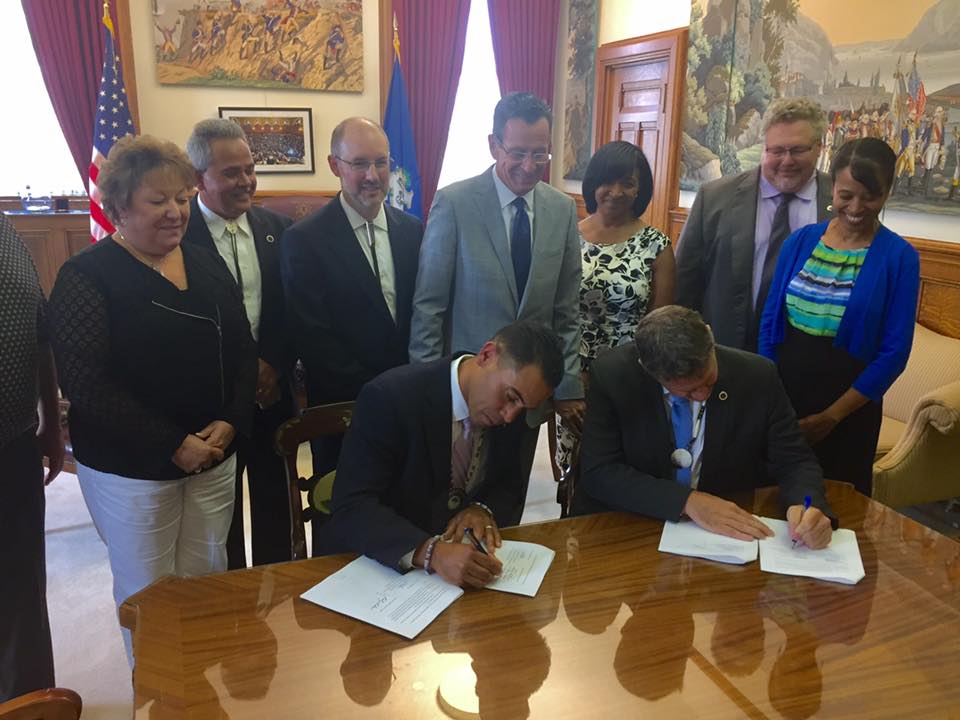Connecticut Amends Tribal Gaming Compacts to Allow for New Casino
Posted on: July 26, 2017, 04:00h.
Last updated on: July 26, 2017, 03:56h.
Connecticut’s House of Representatives approved updates to the state’s tribal gaming compacts on Monday, clearing the way for the Mohegan and Mashantucket Pequot tribes to jointly build the state’s third casino, and its first on non-tribal land.

On a vote of 118-32, the House joined Gov. Dannel Malloy, who signed revised agreements with the two tribes last week. Next, the new compacts require approval from the Connecticut state Senate and the US Bureau of Indian Affairs. Once they sign off on the changes, as both are expected to do, the tribes can break ground on their planned $300 million casino outpost.
In late June, Malloy signed legislation authorizing the facility. But to ensure that current tax revenue generated at Mohegan Sun and Foxwoods has no legal basis to disappear, Malloy and the tribes agreed to edit their compact.
“Over the years, our state has maintained a longstanding partnership and compact with the Mohegan and Mashantucket Pequot tribal nations,” Malloy said when he signed the casino bill. Citing the thousands of workers employed at the casinos, the governor explained that his signature was “about jobs for the residents of Connecticut.”
The site, located off Interstate 91 in East Windsor, was selected at least partly in response to MGM’s $950 million resort currently under construction 15 miles north in Springfield, Massachusetts. The tribes and Connecticut wanted to protect the state’s highly lucrative gambling interests.
Connecticut’s New Deal
The revised agreement ensures that the East Windsor site will not compromise its revenue-sharing arrangement at the two current casinos, Foxwoods and the Mohegan sun. The previous gaming compact stated that Connecticut would be in violation if it authorized a casino on land not deemed sovereign, even if it were operated by the tribes.
The restructured compact also amends a loophole that would’ve allowed the tribes to back out of pledges to send 25 percent of all gross gaming revenue to the state.
Both the Mashantucket and Mohegans have agreed to pay $1 million each as a down payment for the third casino, and as at their other properties, will give 25 percent of revenues to the state. Additionally, the tribes will pay $300,000 annually toward problem gambling initiatives.
MGM Battle Not Over
The state Senate is slated to vote on the compact changes next week, which will then send the new agreements to the Bureau of Indian Affairs for final approval.
Las Vegas-based MGM Resorts, however, says it will continue to fight the state in its opinion that Connecticut is essentially legalizing commercial gambling without voter approval, and then building a casino without a competitive bidding process.
Connecticut has no law on its books that authorizes commercial or non-tribal gambling. Foxwoods and Mohegan Sun operate under federal Indian gaming law, which permits Class I and II gaming on sovereign lands. The rights to Class III gambling were obtained by forming compacts with the state.
Amending those agreements to authorize Class III “tribal gambling” on land that isn’t federally recognized is where MGM will continue to try to make its case.
No comments yet